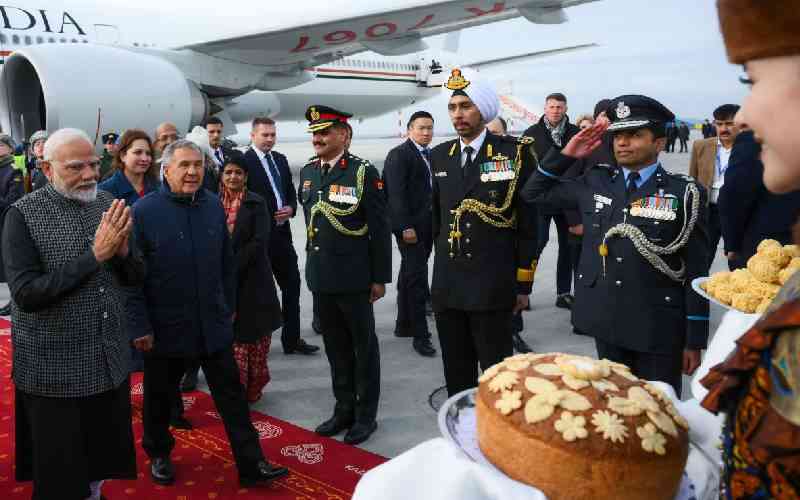×
The Standard e-Paper
Kenya’s Boldest Voice

Two dozen world leaders gathered in Russia on Tuesday for the opening of a three-day summit of the BRICS group, an alliance of emerging economies that the Kremlin hopes will challenge Western "hegemony".
With the summit, the biggest such meeting in Russia since it ordered troops into Ukraine, President Vladimir Putin is seeking to show Western attempts to isolate Moscow over the two-and-a-half-year offensive have failed.







